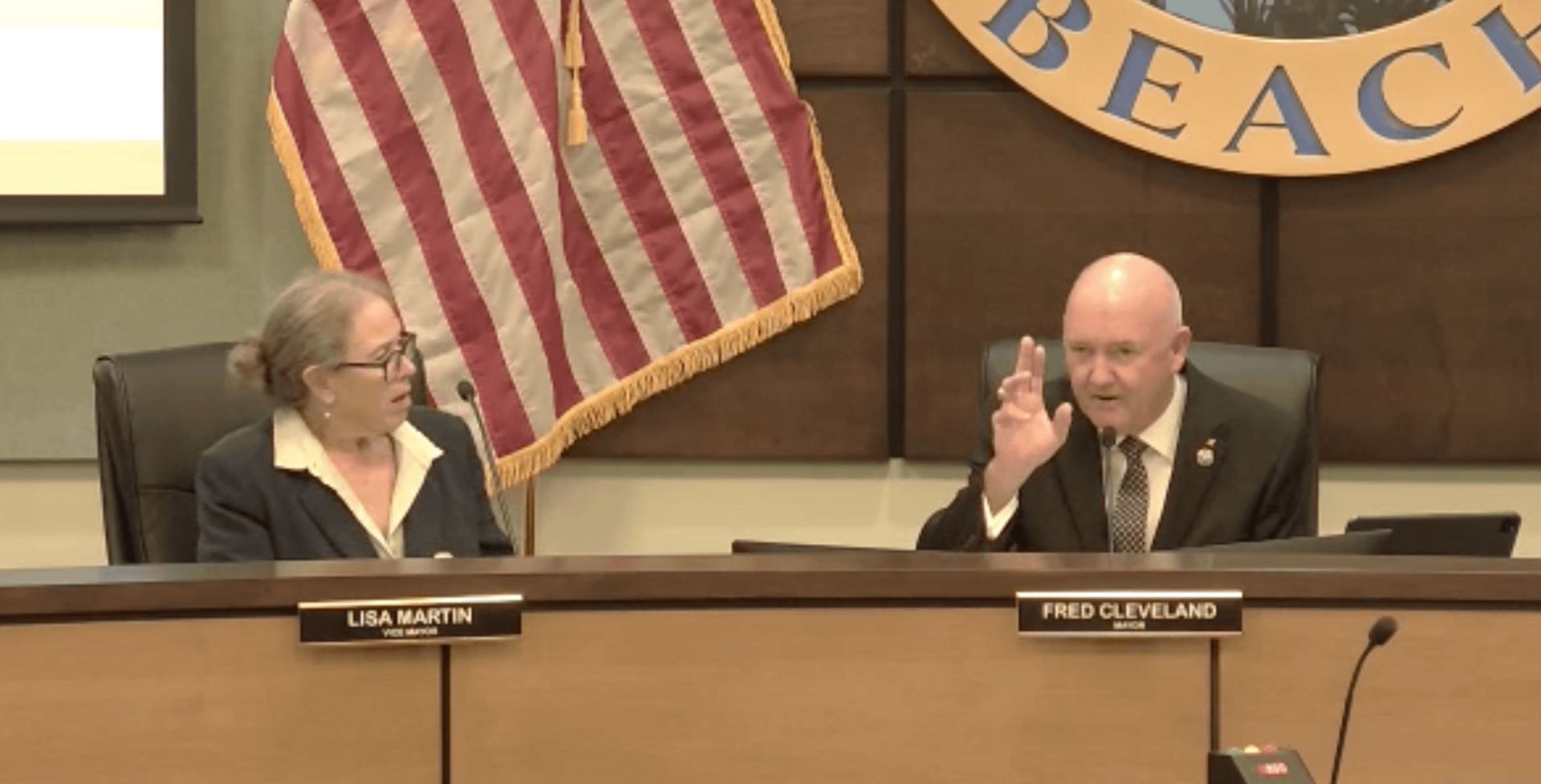When the City Commission voted 4-1 in August against holding a special election to consider charter revisions, opponents thought the issue was dead. Two weeks later, without public notice that the topic would be reopened, commissioners reversed themselves and voted to hold the special election.
That election came and went on Tuesday, with voters resoundingly defeating five of the seven proposed amendments. The perception of a lack of transparency in the process that led to the commission’s Aug. 26 resurrection of the special election likely helped defeat most of the amendments.
Freedom-of-information experts do not see a violation of law in the Aug. 26 meeting, based on Beat’s account of it, but they believe the City Commission fell short of meeting the spirit of Florida’s Sunshine Law.
To show why, they pointed to Florida’s Government-in-the-Sunshine Manual and specifically to its passages describing how controversial topics should be handled.
One section reads: “Even though the Sunshine Law does not prohibit a board from adding topics to the agenda of a regularly noticed meeting, the Attorney General’s Office has advised boards to postpone formal action on any added items that are controversial.” The manual goes on to quote a Florida Attorney General Opinion about a case involving a different city commission: “In the spirit of the Sunshine Law, the city commission should be sensitive to the community’s concerns that it be allowed advance notice and, therefore, meaningful participation on controversial issues coming before the commission.”
The proposed special election was widely regarded as controversial ahead of the Aug. 26 meeting. Two weeks earlier, at an Aug. 12 commission meeting, City Attorney Carrie Avallone noted that a public workshop about the charter amendments had included “debate amongst the commission regarding whether [the vote] should be November 2025 or November 2026.” A 2025 vote would be a special election, and it would cost $50,000, while including the proposed amendments on the 2026 general election ballot would be far cheaper. At the same meeting, Mayor Fred Cleveland acknowledged public criticism of two of the amendments, one that would change the salary formula to provide 80% raises for the mayor and commissioners and another that would double the length of the mayoral term to four years. He referenced public “comments about voting yourself a raise, or voting for an extension,” and said a special election would give voters an opportunity to decide those things.

Vice Mayor Lisa Martin and Mayor Fred Cleveland debate the special election at the Sept. 9 City Commission meeting. Credit: Screenshot from city video
Opponents of the special election had assumed the controversial issue was settled in their favor during that Aug. 12 meeting when the commission voted 4-1 against holding the special election in large part due to its cost.
Then came the Aug. 26 meeting. When the commissioners arrived at the agenda item labeled “City Manager’s Report,” City Manager Kevin Cowper revealed that he had received a letter from Mark Billings, the chair of the Charter Review Committee, and he proceeded to read it. Billings asked the commissioners to hold a special election this year as recommended by the review committee. After some discussion, Cleveland invited the vice chair of the committee, Michael Ison, to the podium, and Ison also asked the commission to approve the special election. The personal appeals worked. The commissioners reversed themselves and approved the special election on a 4-1 vote.
Nothing in the meeting’s agenda packet indicated that there would be discussion and further consideration of the special election.
The vague wording of the Sunshine Law would make it difficult to argue in court that the lack of an agenda item constituted a violation of the law, said David Cuillier, a freedom of information researcher and director of the University of Florida’s Brechner Center for the Advancement of the First Amendment. “I can’t predict which way it would go, but a typical, average person would say [those who planned the meeting] weren’t really very up front about what they intended to talk about,” he added. “People need to know specifically what they're going to talk about to decide whether they want to go to the meeting or not to observe and ask more questions.”
Action on a consequential topic without public notice misses “the intent of the law,” Cuillier said. “We're not going to trust our leaders if they hide this stuff and play games.”
Bobby Block, executive director of the Florida First Amendment Foundation, said that if Beat’s account is correct, what transpired was not a Sunshine Law violation. He pointed to a section of the manual that says, “The Sunshine Law does not mandate that an agency provide notice of each item to be discussed via a published agenda.” Still, he added, “It might have been better had they paused and moved that discussion to a meeting where it was an agenda item.”
The city government this week responded to an inquiry from Beat by defending the Aug. 26 vote. “The City Commission voted to call a special election – a policy decision, not a legal one – to support the Charter Review Committee’s recommendation, avoid ballot fatigue, and provide job certainty for the city clerk. Simply put, the city attorney did not intervene because the process was legally sound,” the city said in a Nov. 6 statement emailed by Public Information Officer Phillip Veski.
The Aug. 26 vote cleared the way for the commission to subsequently approve the Nov. 4 date for the special election and the wording of the yes-or-no questions.
Resident Deborah Hall was among those who were disturbed by the commission’s reversal and how it came about. “I was shocked that the city attorney did not stop them. I have seen many boards stopped before taking a vote on non-agenda items,” she said by email.
In September, a special election seemed to be a fait accompli, and so opponents largely switched to criticizing the proposed measures on social media and through a “Vote No!” yard-sign campaign.
Among the amendments rejected Tuesday were those that would have doubled the length of the mayoral term, resulted in 80% raises for the commissioners and mayor, and shifted the city clerk under the supervision of the city manager.
Even though the most controversial charter amendments failed, Cuillier said it’s important to illuminate cases like the Aug. 26 meeting. That case joins others that in his view show why the Sunshine Law should be updated to require “reasonable specificity” about agenda topics ahead of a meeting. “That’s really the only way that we're going to have true transparency. It's the only way that people are really going to know what their government's planning to talk about.”
Email: [email protected]

